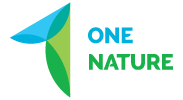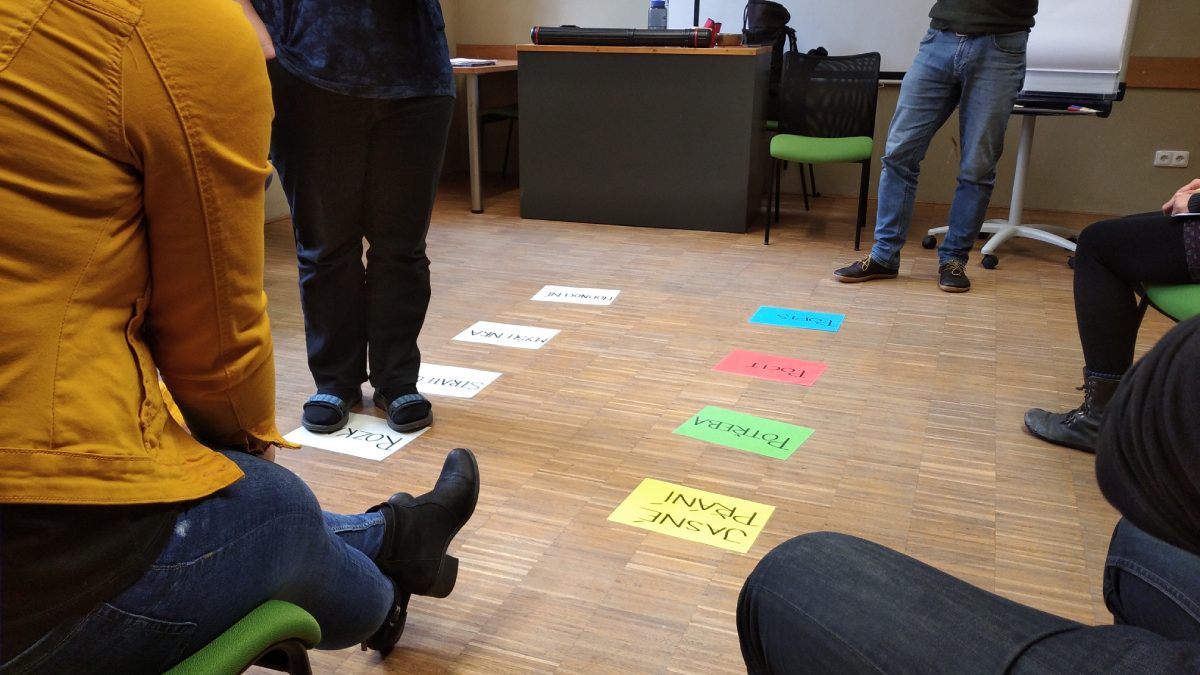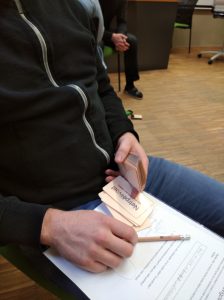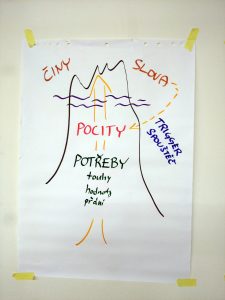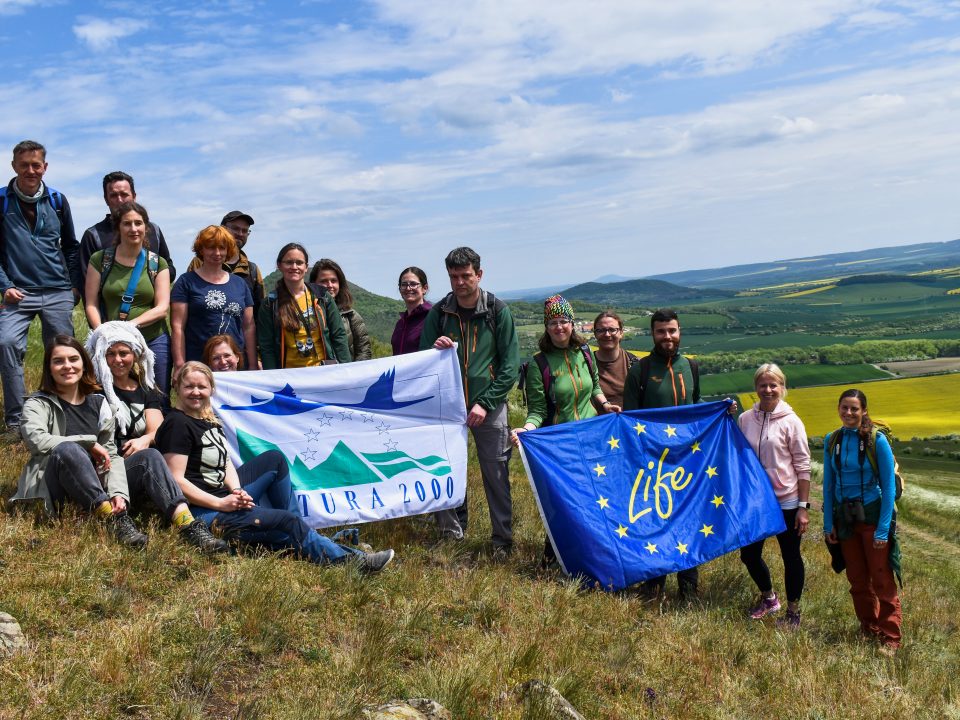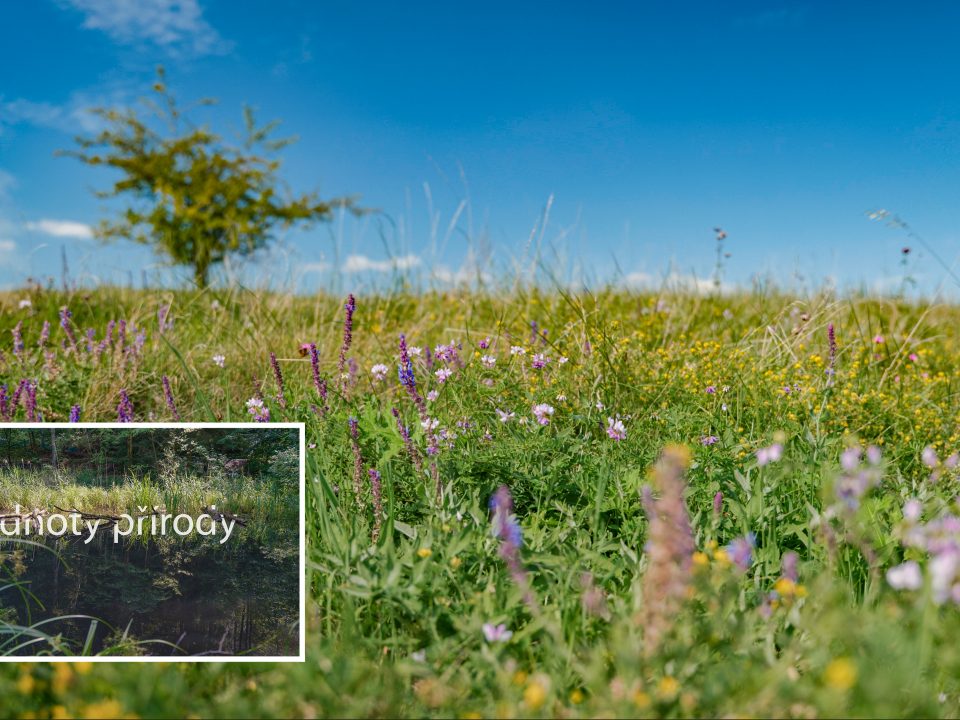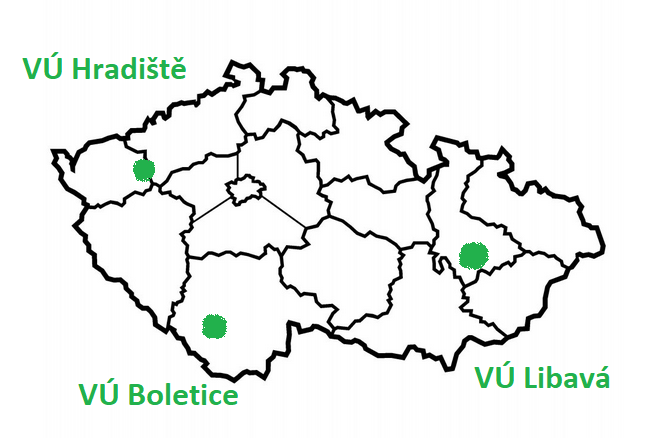Better communication is the basis for better cooperation
We have prepared specialised communication training for the Nature Conservation Agency staff who meet with owners and users of land in protected areas and negotiate with them, among other things, specific management suitable for the area.
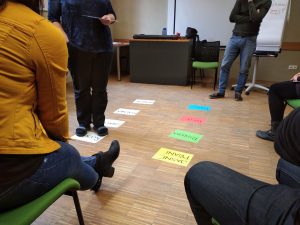
An example of a practical exercise at a communication training on the nonviolent communication method. Photo: Linda Blättler
It focuses on the method of nonviolent communication, which leads to a better understanding of the other party, especially their needs and the feelings through which the needs are manifested. Thanks to this understanding, it is possible to establish a relationship with the other party and then to negotiate, for example, practical or strategic matters – such as the management of a selected Natura 2000 site, which is often in private hands.
The two-day training course in nonviolent communication has been organised by the Nature Conservation Agency in cooperation with NVC Brno four times: in March and April 2021 online, then in person in October 2021 in Prague and in January 2022 in Brno. A total of 42 employees of the NCA regional offices participated in the training.
The method of nonviolent communication was developed by Marshall Rosenberg in the USA in the 1970s. It is based on three pillars: self-empathy, expressing honestly and receiving empathically. It is an anti-conflict method that, through properly focused attention, contributes to solving problems instead of escalating them.
The feedback from the participants received after each training session showed that they found it useful and will use the knowledge and especially the skills learned in their future work, as illustrated by one of the participants interviewed: “The use of the communication techniques presented to us at the training opens up a wider space for me to make the relationship between me and the owner more human.”
Another NCA employee commented similarly on his participation in the training: “In my communication practice I will touch more on the needs of the other person and make sure that they understand, I will develop the debate by using well-chosen questions and focus on the needs of the other person and aim to see if they understand me. And I will not resort to quick fixes.”
Two more advanced training sessions on the same topic will be held for the NCA staff this year.
